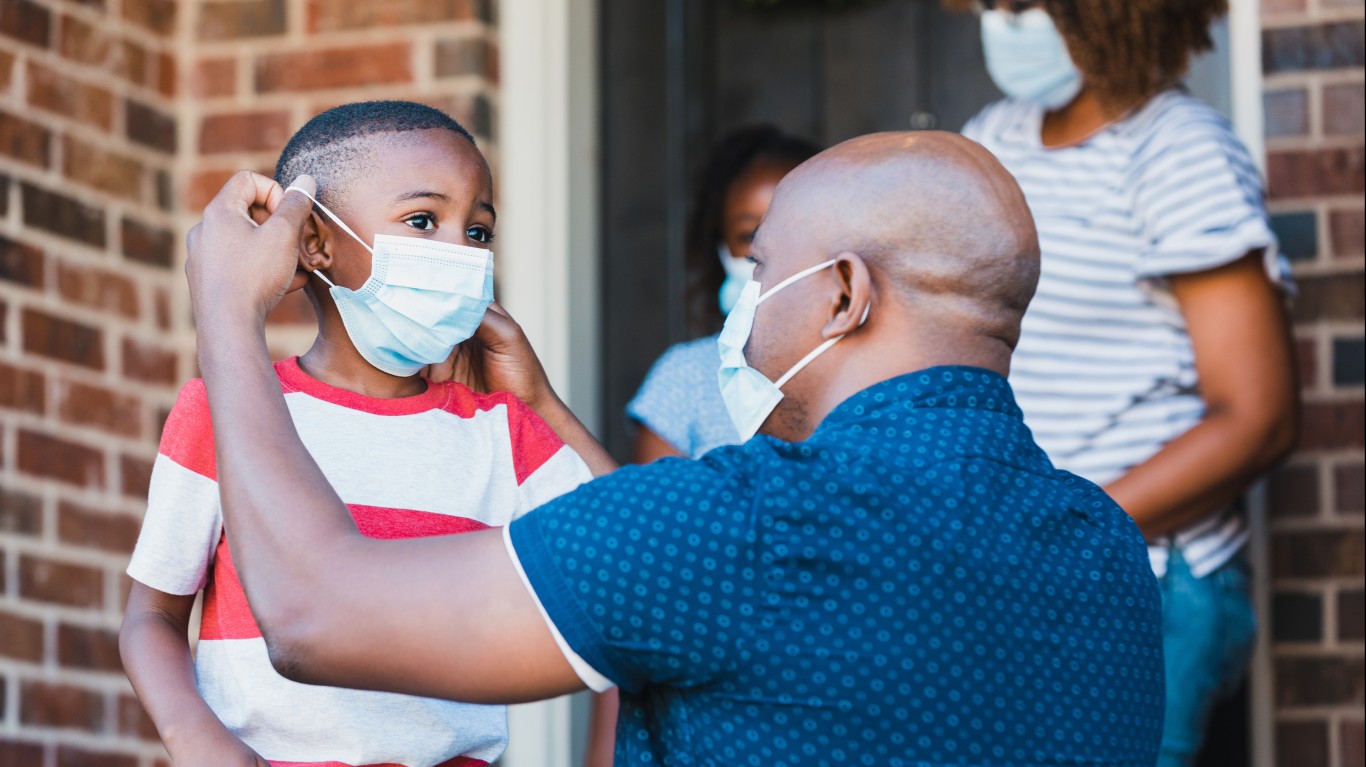Special Report
A New Way to Prevent COVID-19 Family Spread, Scientists Say

Published:

COVID-19, an infectious virus, has been spread primarily by very close contact among people. There are exceptions — it can float in the air for distances of more than several feet, and can live on some surfaces for hours or even days — but close contact has been a particular problem with people who share the same home, related or not. Now there’s an effective way to slow or stop spread among families.
The news is important because the spread of COVID-19 in America has started to slow considerably. Confirmed cases rose as much as 225,000 a day in early January; now the number is under 100,000 most days. Deaths, which rose at a rate of as many as 4,000 a day just over two months ago, have dropped to 1,000 daily. Nevertheless, America has 29,506,986 confirmed cases, about a quarter of the world’s total. And fatal cases in the U.S. have reached 535,758, about a fifth of the global figure. (This is an account of the coronavirus spread in the U.S. over a year’s time.)
The primary means of preventing the spread of COVID-19 are wearing masks, social distancing, and vaccination. About 19% of the U.S. population has received at least one dose of vaccine. About 10% have been fully vaccinated. Unfortunately, just as the rate of vaccinations has started to rise, some parts of the country have “reopened”. This means social gatherings are allowed, and people do not face mask mandates.
In addition, counterintuitively, there are still many Americans who say they don’t want to be vaccinated. These are the states where the most people are refusing the COVID-19 vaccine.
Fortunately, there is now a way that families can stay safer together, mitigating the spread of the disease, even when one or more family members are infected.
Click here to see a new way to prevent family spread, scientists say

COVID-19 can spread rapidly within families
It makes sense intuitively that people who live in close quarters constantly would transmit the disease readily. The data prove this to be true. According to Healthline, in a study from the Vanderbilt University Medical Center, led by Dr. Carlos Grijalva, an associate professor of health policy, and Dr. H. Keipp Talbot, a professor of medicine, “Researchers found that just over half, or 53 percent, of people living with someone with a SARS-CoV-2 infection contracted the virus themselves.”
[in-text-ad]

Even small families are at risk
The troubling spread of COVID-19 within households is not exclusive to large families. The amount of space family members occupy as a group should also be a consideration. “I think it depends on the size of the room,” according to Stephen Hippler, MD, chief clinical officer of OSF Multispecialty Services. “If you’re in a small dorm room, two or three may be a large gathering.”
A pharma “cocktail” offers a solution
According to MedScape: “A one-time injection of the monoclonal antibody cocktail casirivimab with imdevimab (REGEN-COV), taken within 72 hours of a household member’s diagnosis with SARS-CoV-2, prevented 100% of COVID-19 illness, 100% of high SARS-CoV-2 viral loads, and cut length of asymptomatic infection to 1 week.”

How important is this discovery?
Rajesh Gandhi, MD, an infectious disease physician at Massachusetts General Hospital and Harvard Medical School, commented on the results: “For individuals who, for whatever reason, don’t get the vaccine or decline the vaccine or haven’t yet gotten the vaccine, it’s really proof that antibodies can prevent disease.” The data were presented at the 2021 annual Conference on Retroviruses and Opportunistic Infections.
The fact that there is now a way to curtail family spread comes none too soon.
Thank you for reading! Have some feedback for us?
Contact the 24/7 Wall St. editorial team.